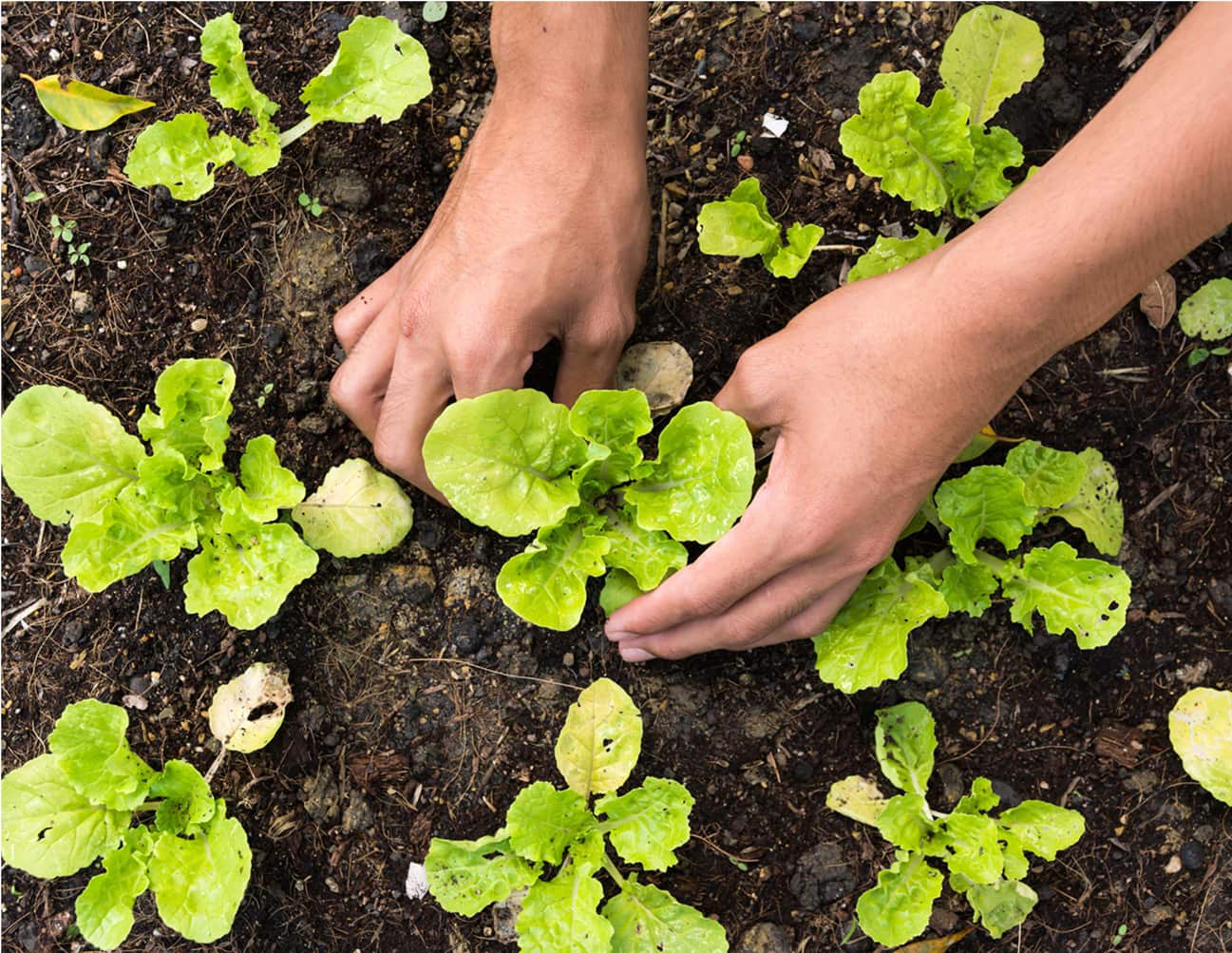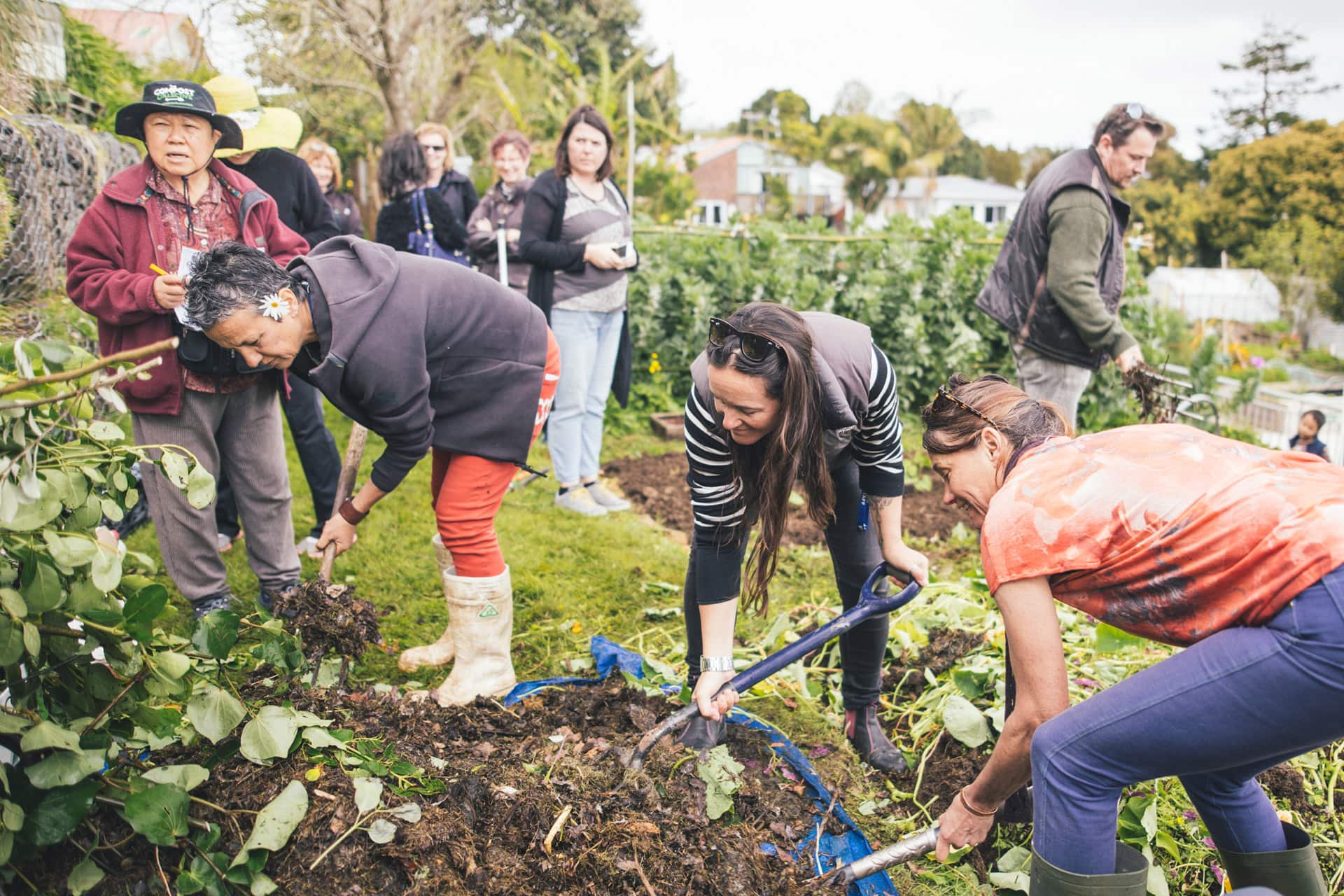HELPING CommunitIES TOWARDS a Waste-Free Future.
We offer funds to support the development and operations of community composting hubs, where businesses, schools, groups and households can bring food scraps and garden waste for composting, and the hubs then use the compost for food gardens. We broker connections between these groups to complete the regeneration cycle.
Eligibility
Anyone in the Auckland region can apply for the Community Composting Grant, which provides up to $800 per composting hub each financial year for approved expenses; however, funding is only available for community-focused systems and not for private use.
Please note: This grant can be applied for in tandem with Auckland Council’s WMIF (Waste Minimisation and Innovation Fund). The grant is also available to social enterprise model drop-offs. If the Living Compost app is funded for you, we also ask for your hub’s diversion data to be shared with us.

Set Up a Composting Hub
The Community Composting Grant can be used for the following expenses only:
If you have a query about something that is not on this list, but necessary to grow your compost hub, please email [email protected]
Systems
*DIY worm farms – $35.00
*DIY compost bins – $35.00
*DIY bath tub worm farm – $500
New worm farm
New compost bin
New bokashi
Bokashi zing (5kg)
Worms (250g)
Replacement parts
Tools
Wheelbarrows
Thermometers
Weighing scales
Compost aerators
Long handled fork
Hub Marketing & Promo
Signage
Subscription to Living Compost Hub App.
Hosting skillshare events with the community (Funds available for koha for hub space $100 and kai)
Professional development for hub coordinators (Fees paid or subsidies to advanced workshops and courses)
Hosting community workshops (Fees paid to speaker)
Note
Travel costs are not eligible
Professional development funds are limited
*These costs are for converted systems. If you receive funding for already converted systems, we will organise for these to be made for you, and the money will be paid directly to Masseys Men’s Shed and not reimbursed to you. We will be in touch about collection or delivery options.
Contact [email protected] for DIY resources and replacement parts for DIY systems, including buckets and wheelie bins which are available for free or at low cost. The facilitators also have access to printed factsheets (in many different languages and for each main composting system).
Application Process
To apply for the Community Composting Grant, fill in the online application form below. Applications are processed on a weekly basis, so you’ll hear back within seven business days if your grant is approved.
When completing the application form, please give us as much information as you can about your compost hub. This will help us to provide you with the best support for your hub, which might include other free resources.
Note: You must have a process in place for accepting food scraps from the community which includes following all essential health and safety guidance. EcoMatters has developed health and safety risk assessment templates for large scale Bokashi, worm farms, and traditional composting systems.
What Happens Next?
An overview of where to from here once your application has been approved.
Once your application is approved, you can go ahead and buy the items needed for your hub. Make sure to keep all receipts as you will need them for reimbursement.
After you have spent the allocated funding, fill in our accountability form. Be sure to include receipts and photos of your hub to confirm your purchases.
Once we have received and approved your accountability form, we will reimburse up to the agreed funding amount for any approved items from the list.
We will introduce you to your local Compost Collective Facilitator, who can offer ongoing support and expert advice tailored to your hub’s needs.
Take advantage of free composting workshops, fact sheets, and other helpful resources. If you’re a school, we also provide specific guidance on composting in educational settings.
Find a local composting hub
Keen to find a place to drop off your food scraps instead of throwing them in the bin?
The easiest way to find a local composting hub is to join MakeSoil.
MakeSoil connects “Soil Makers” (composters) with nearby “Soil Supporters” (scrap contributors), helping Kiwis divert green scraps from landfills by pairing them with neighbors who compost, use worm farms, or keep chickens.
